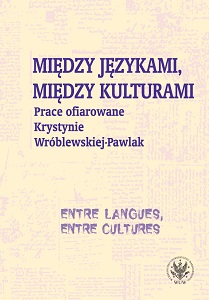„Niefortunna wypowiedź”, „niemądra decyzja” „niezręczny flirt polityczny”, „nieszczęśliwe sformułowanie”, czyli o jednym ze sposobów łagodzenia sądów/opinii w wypowiedziach osób pełniących funkcje polityczne i publiczne
‘Unfortunate statement’, ‘unwise decision’, ‘awkward political flirtation’, ‘unlucky wording’, or a few words about one of the ways to mitigate the declarations/opinions in the statements of public and political officeholders
Author(s): Małgorzata Izert
Subject(s): Theoretical Linguistics, Applied Linguistics, Philology
Published by: Wydawnictwa Uniwersytetu Warszawskiego
Keywords: adjective; euphemism; intensity; litotes; political language
Summary/Abstract: In this article we analyze the context meaning of four adjectives: niemądry (unwise), niefortunny (unfortunate), niezręczny (awkward, clumsy), nieszczęśliwy (unlucky) in contemporary Polish political language. Politicians try to avoid off ending somebody and try to make a better impression while talking about themselves, so they use those adjectives to talk about a negative feature in a euphemistic manner. However, while telling less, politicians oft en intend to make an impression that they said more. Litotes, which can be accurately understood only in the full context of its use, is a veiled way to criticize someone or something, or to point out a serious shortcoming.
Book: Między językami, między kulturami/Entre langues, entre cultures
- Page Range: 67-78
- Page Count: 12
- Publication Year: 2021
- Language: English, French, Polish
- Content File-PDF

